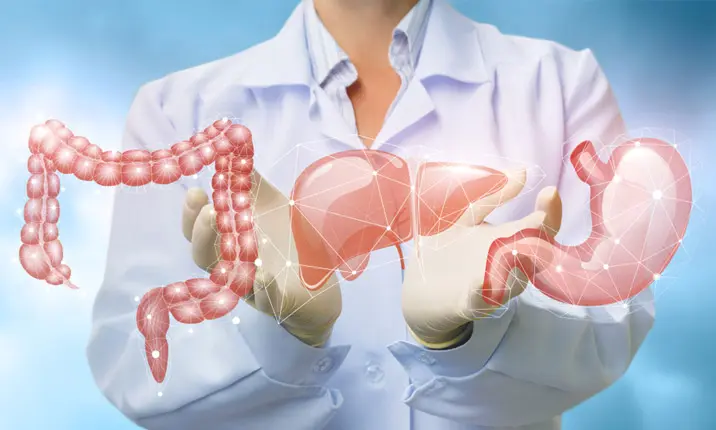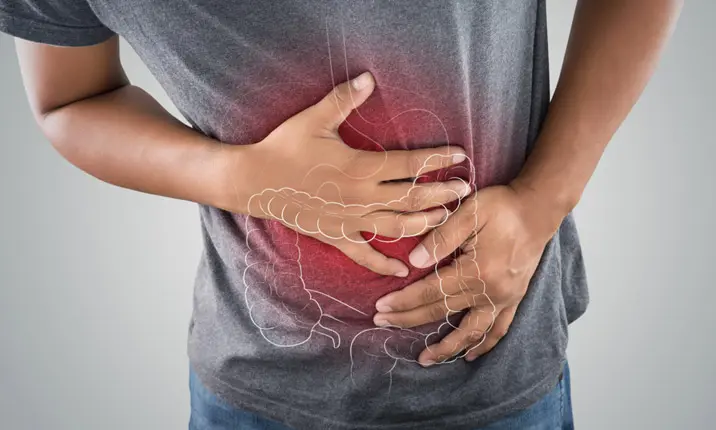What are gastrointestinal cancers?
Gastrointestinal (GI) cancer refers to cancers that affect the digestive system.
What are the most common types of gastrointestinal cancer?
According to the Singapore Cancer Registry Annual Registry Report 2015, the most common gastrointestinal (GI) cancers are:
Colorectal cancer
It is the most common type of (GI) cancer afflicting 17.2% of men and the second most common in women at 13.4%.
Liver cancer
This is the next most common GI cancer, affecting 7.5% of men in Singapore.
Stomach cancer
Rounding off the top 3, it afflicts some 4.7% of men and 3.4% of women.
What are the causes and risk factors for these GI cancers?
Colorectal cancer begins in the colon or large intestine, with the formation of small growths known as polyps. While they are mostly non-cancerous, they can sometimes develop into cancerous growths. It is more likely to affect those above 50 years of age, with a family history of colorectal cancer, or those who suffer from inflammatory bowel disease. Other risk factors include being physically inactive, overweight or obese. Smoking and alcohol consumption are further risk factors.
Liver cancer usually develops from infection with the hepatitis B virus (HBV). However we are seeing an alarming increase in cases of liver cancer caused by fatty liver.
Stomach cancer is commonly associated with gastrointestinal reflux disease (GERD), obesity, family history of stomach cancer, and infection with Helicobacter pylori. Other risk factors include a diet that is high in smoked and salted foods and low in fruits and vegetables. Smoking and anaemia from vitamin B12 deficiency are further risk factors.
What are the signs or symptoms?
Symptoms of gastrointestinal cancers may be easily missed, as they seem mild or unalarming, especially in the early stages. However, if symptoms persist, it's important to get them checked as more than half the cases diagnosed between 2011 and 2015 were discovered at late stages, which reduces the chances of successful treatment.
Furthermore, 1 in 5 of these were under the age of 55 years, indicating that there is a need to educate younger adults to recognise symptoms and seek medical advice without delay.
Colorectal cancer
- Blood in the stools
- Sudden changes in bowel habits
- Persistent abdominal discomfort or pain
- Unexplained weight loss
- Anaemia
Liver cancer
- Weight loss
- Loss of appetite
- Feeling full after eating small amounts of food
- Nausea or vomiting
- Jaundice or the yellowing of the skin and eyes
- Discomfort or pain in the abdomen
- Swelling or build-up of fluid in the abdomen
Stomach cancer
- Blood in the stools or black stools
- Upper abdominal discomfort or pain (also known as dyspepsia)
- Persistent indigestion
- Heartburn after meals
- Loss of appetite
- Weight loss
- Anaemia from blood loss
How are they diagnosed and treated?
A gastroenterologist (a specialist on the body's digestive system) will review your family history and symptoms before recommending specific tests.
What is the long-term outlook for those who are diagnosed with these cancers?
Most cancers, when detected early, offer a good chance for successful treatment. Symptoms of gastrointestinal cancers may be easily overlooked or ignored as an easily treated medical issue, such as indigestion and that it will go away on its own. This could lead to a delay in diagnosis and treatment. Early detection improves the chances for successful treatment, so vigilance and regular screenings are essential.
It's best to seek medical advice promptly from a gastroenterologist or doctor if you suspect something might be wrong. Simply put, when it comes to detection and treatment, sooner is better than later.
Is it possible to reduce the risk of developing these cancers?
There is no certain way to prevent gastrointestinal cancers but lifestyle changes can reduce the risk. The most important changes to make for cancer prevention are: stop smoking, limit or avoid alcohol, eat a balanced and nutritious diet, and get active.
For gastrointestinal cancers, additional steps can help:
Colorectal cancer
- Eat less red and/or processed meat
- Eat more fruits and vegetables
- Go for regular screening when aged 50 years and above
Liver cancer
- Get tested for immunity against hepatitis, fatty liver or liver inflammation
- Get vaccinated against hepatitis A (HAV) and hepatitis B (HBV)
- Maintain a healthy weight
Stomach cancer
- Get tested for Helicobacter pylori infection
- Eat more fruits and vegetables
- Avoid, or eat less processed, cured (salted, smoked) meat
If you have a family history of cancer, have 1 or more risk factors, or if you notice any symptoms, speak to a gastroenterologist for advice.















